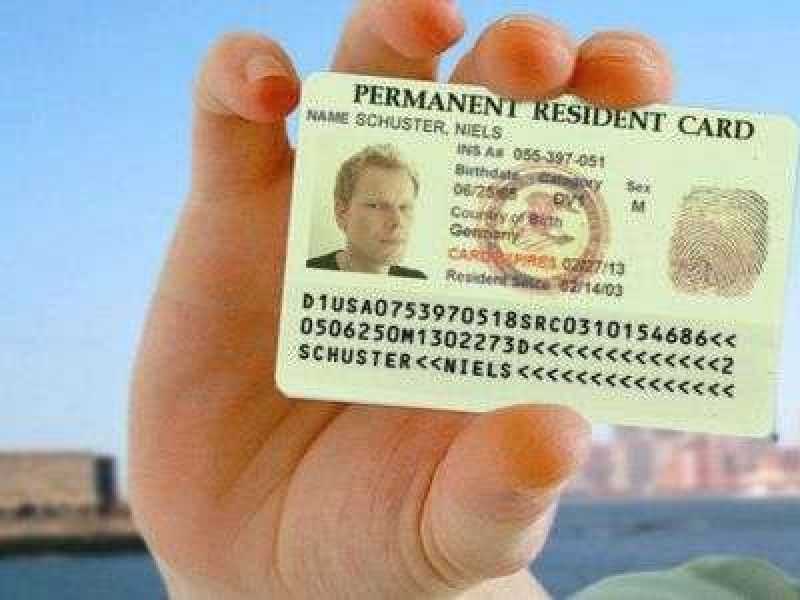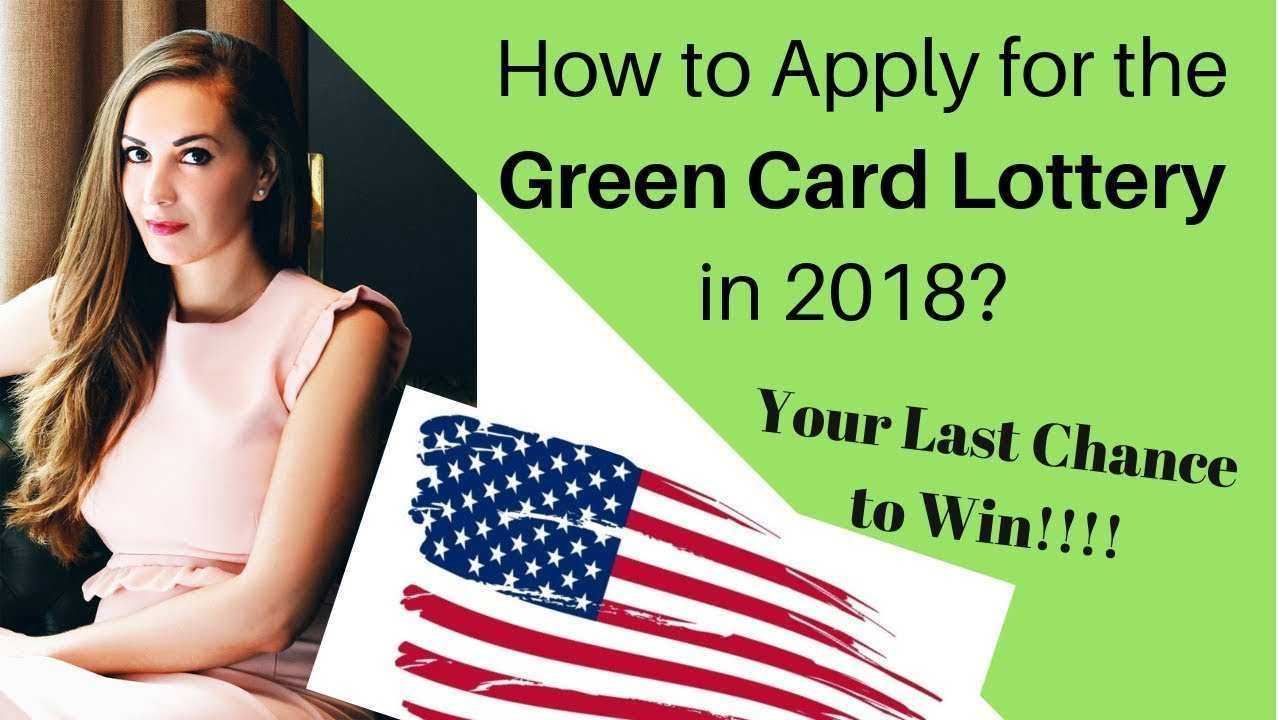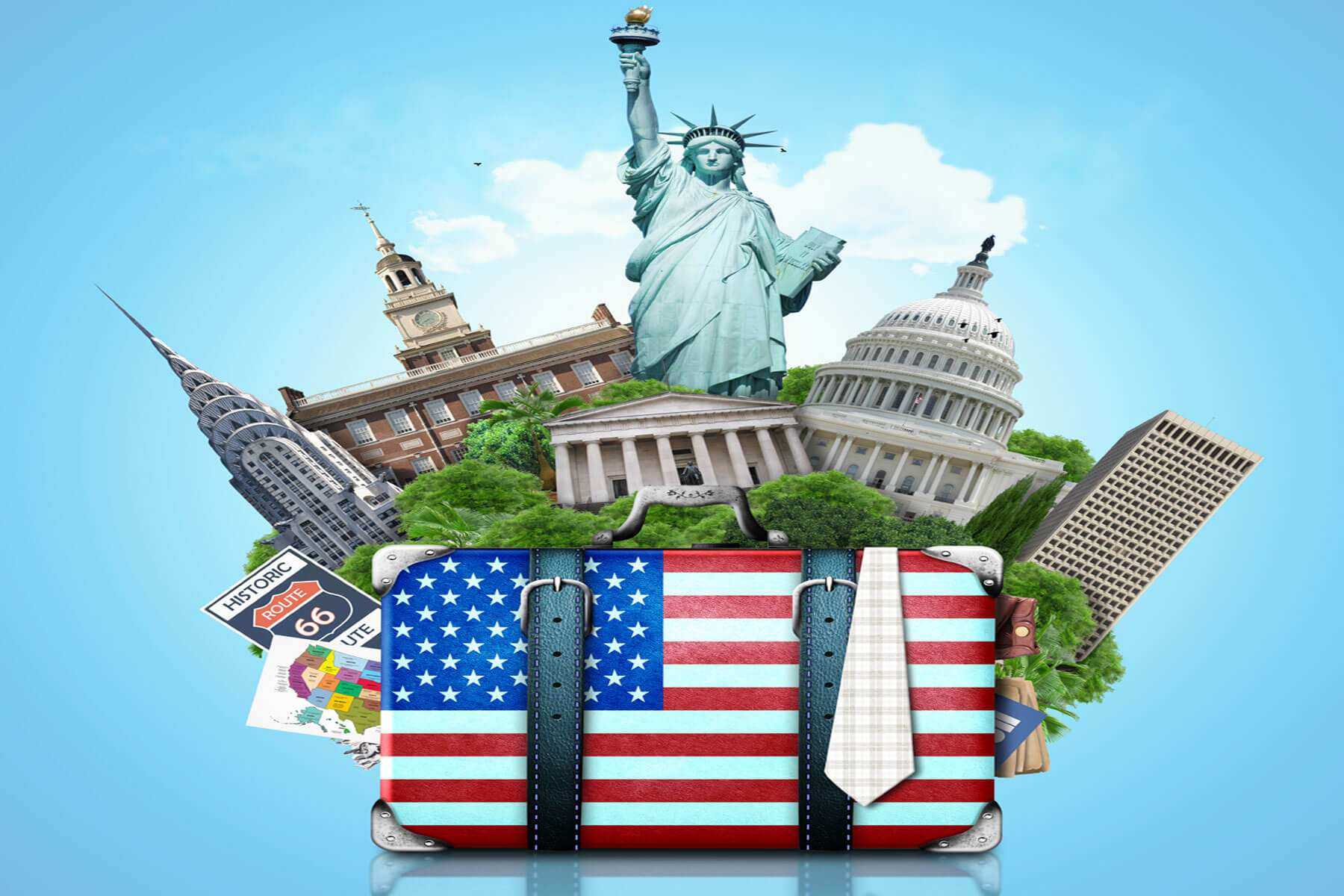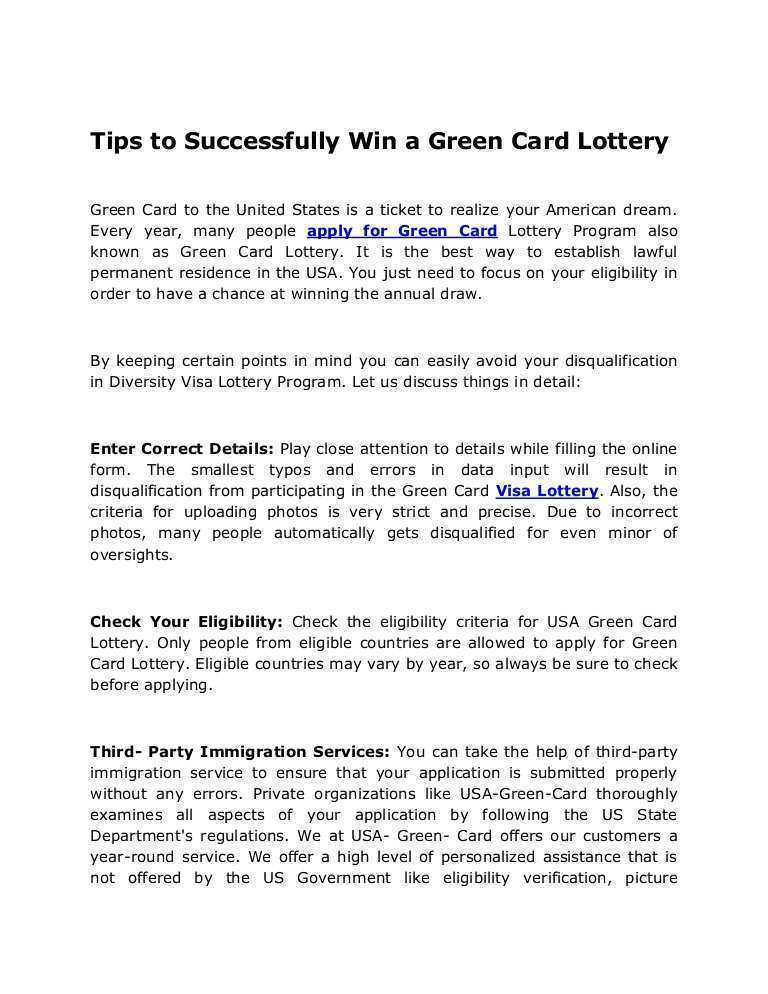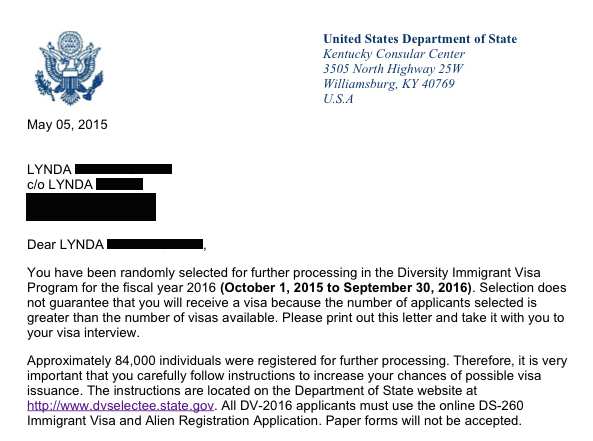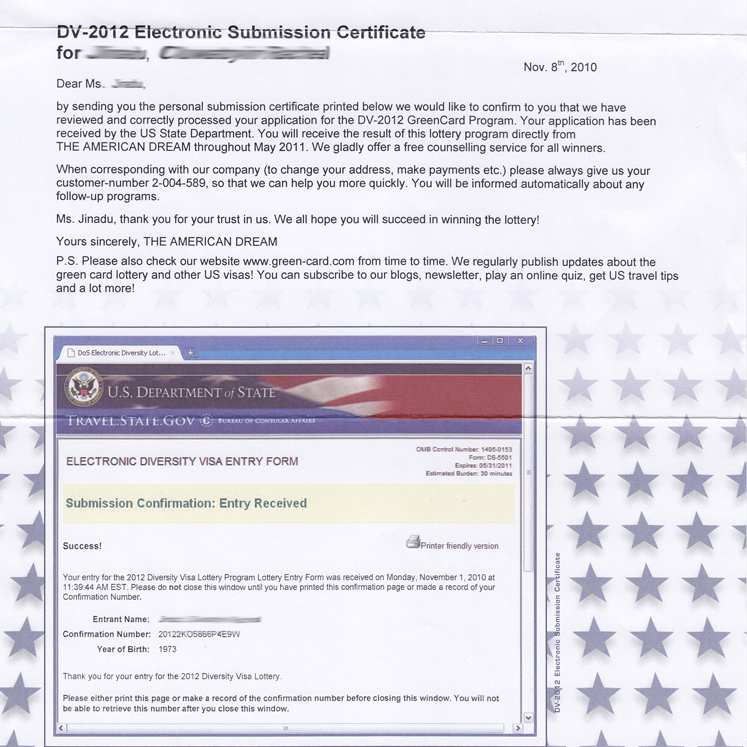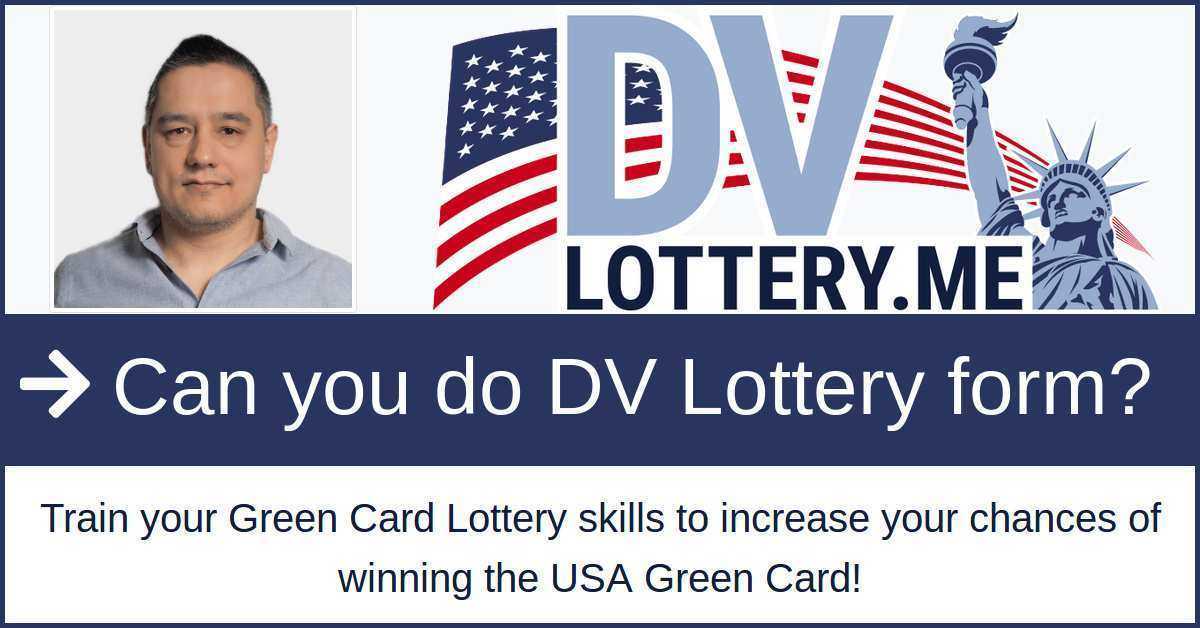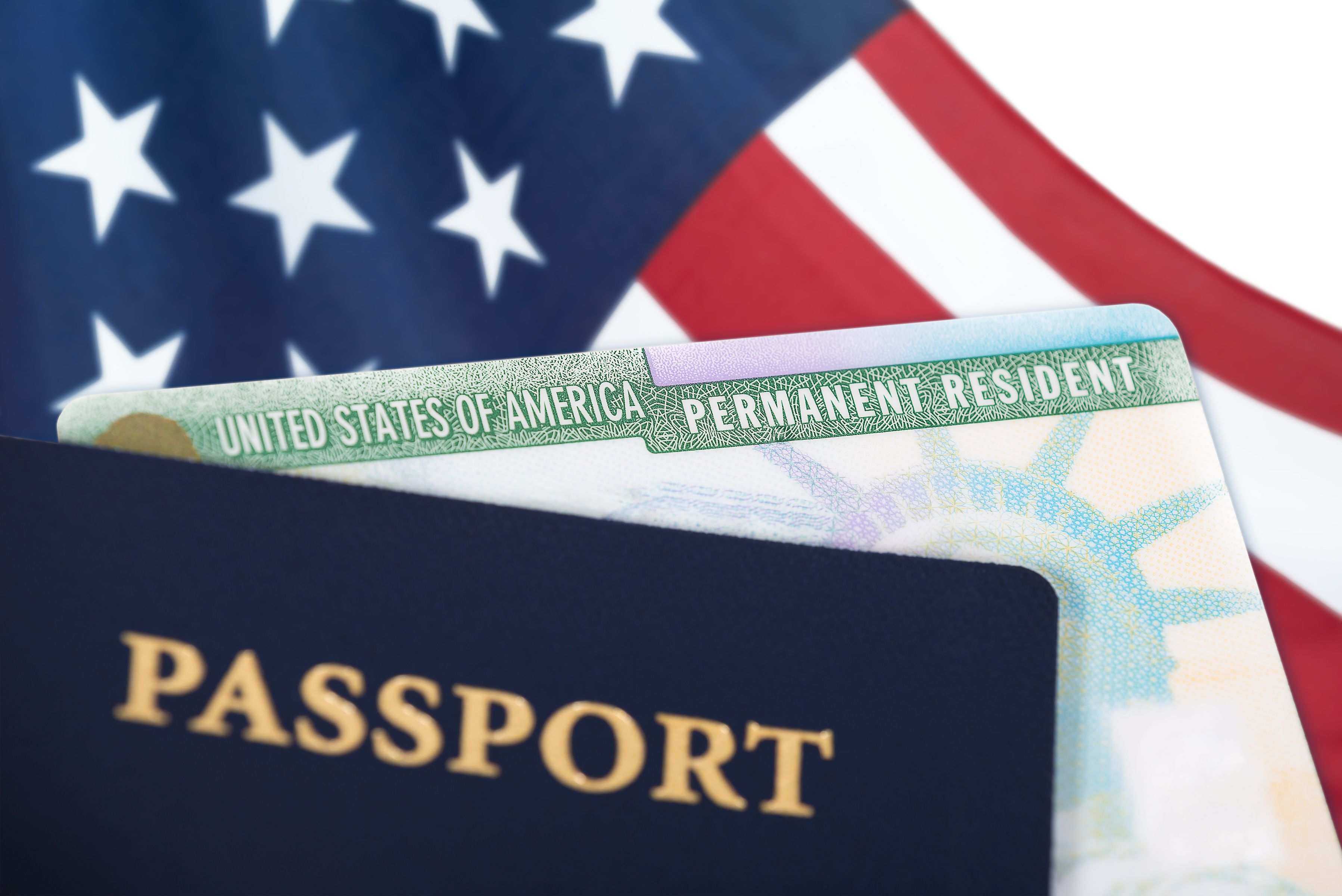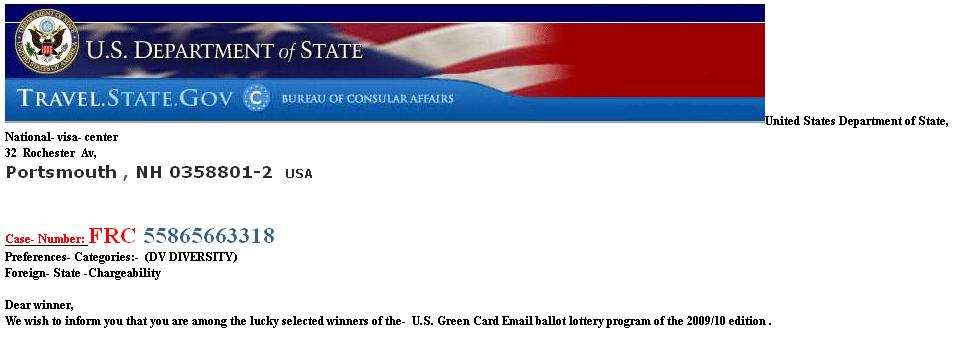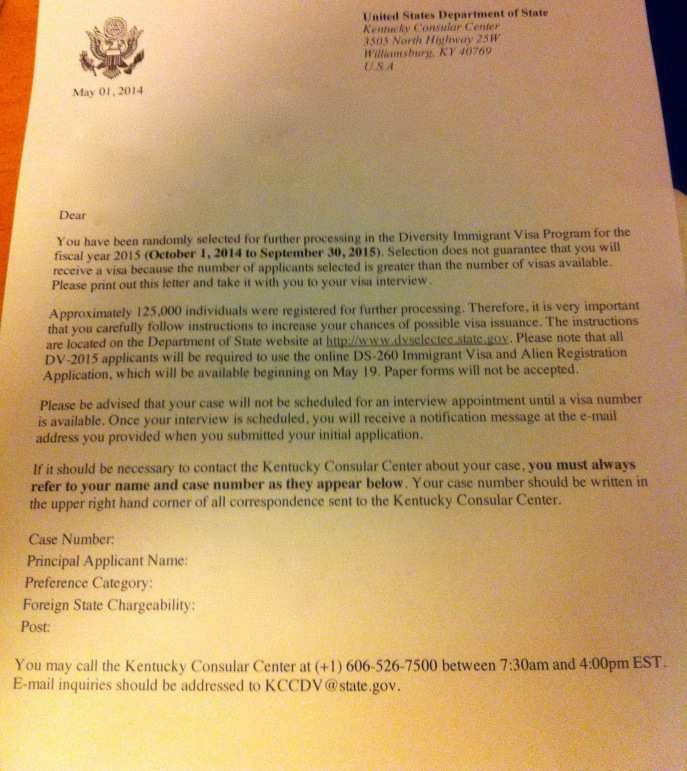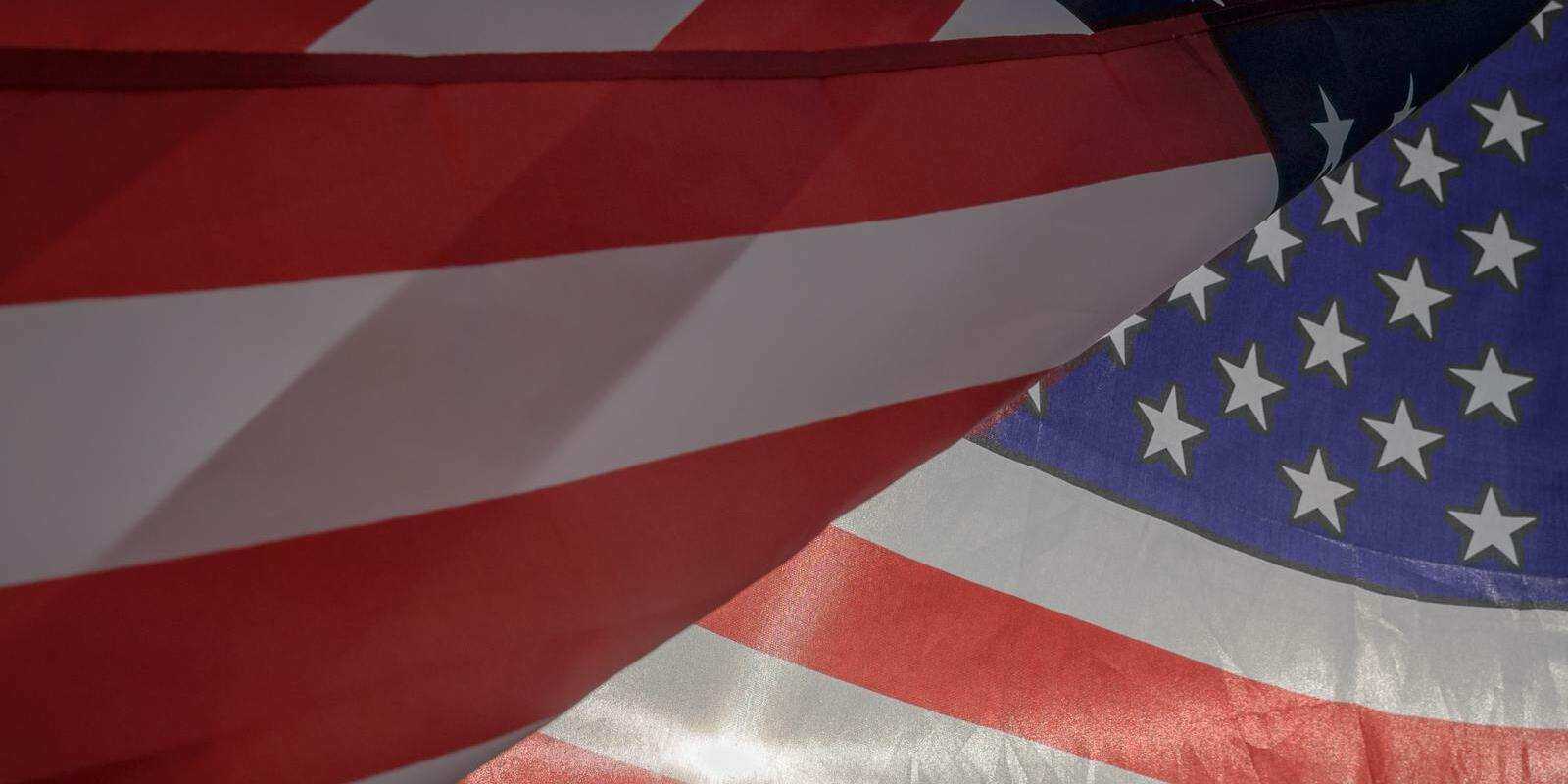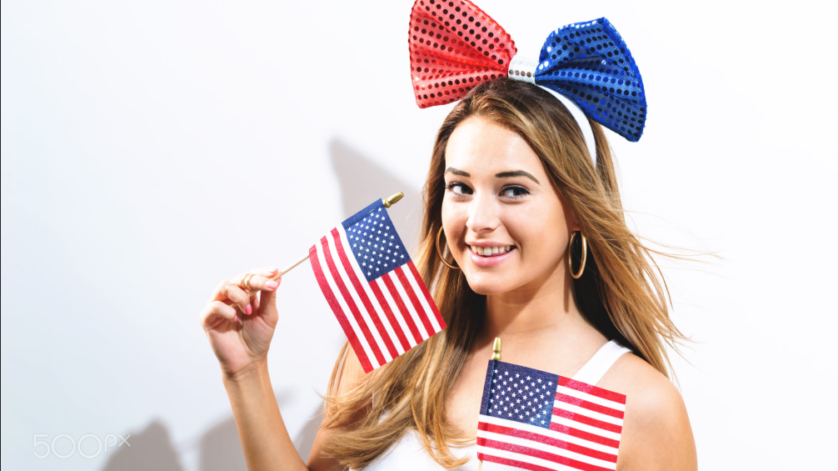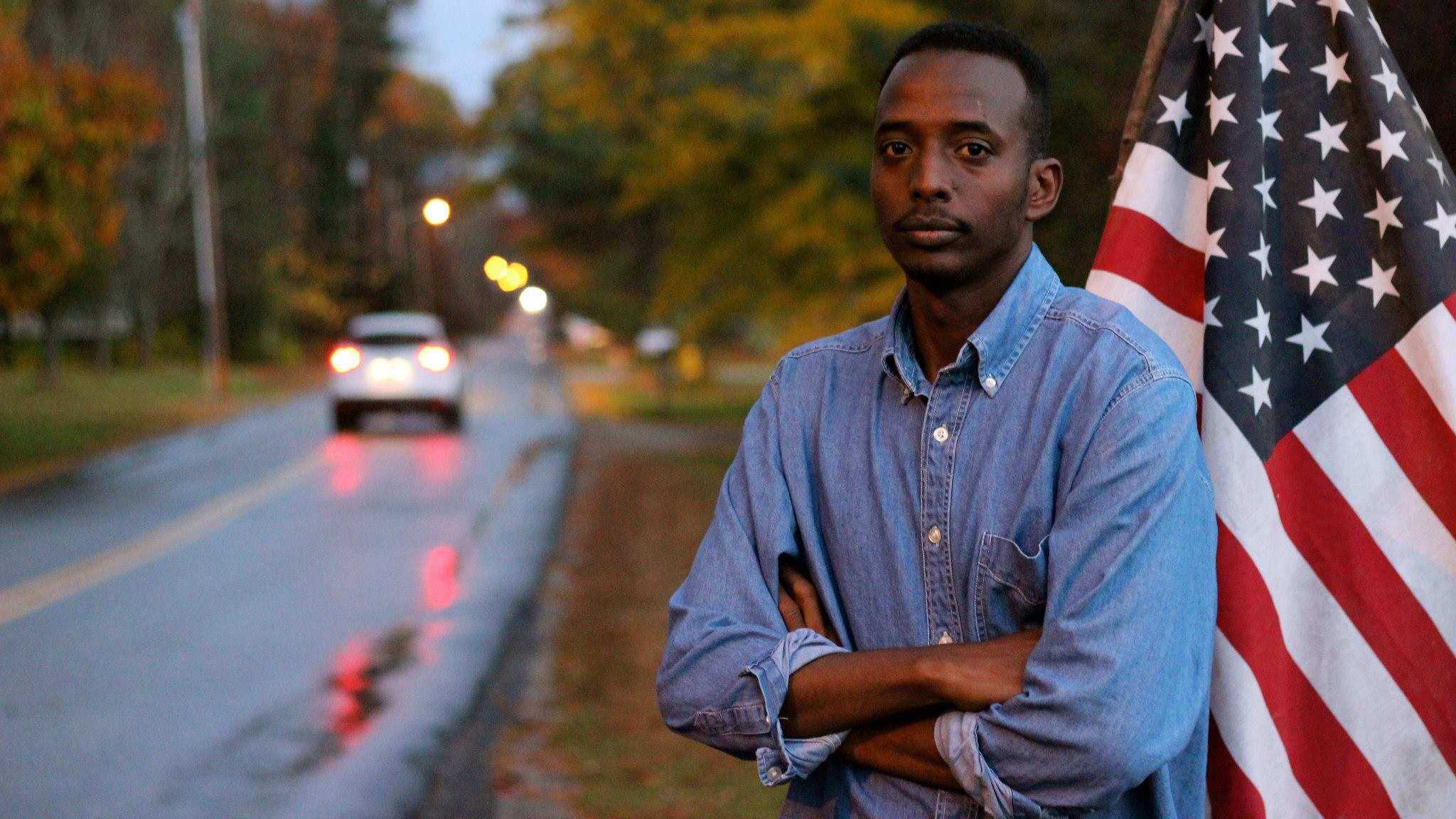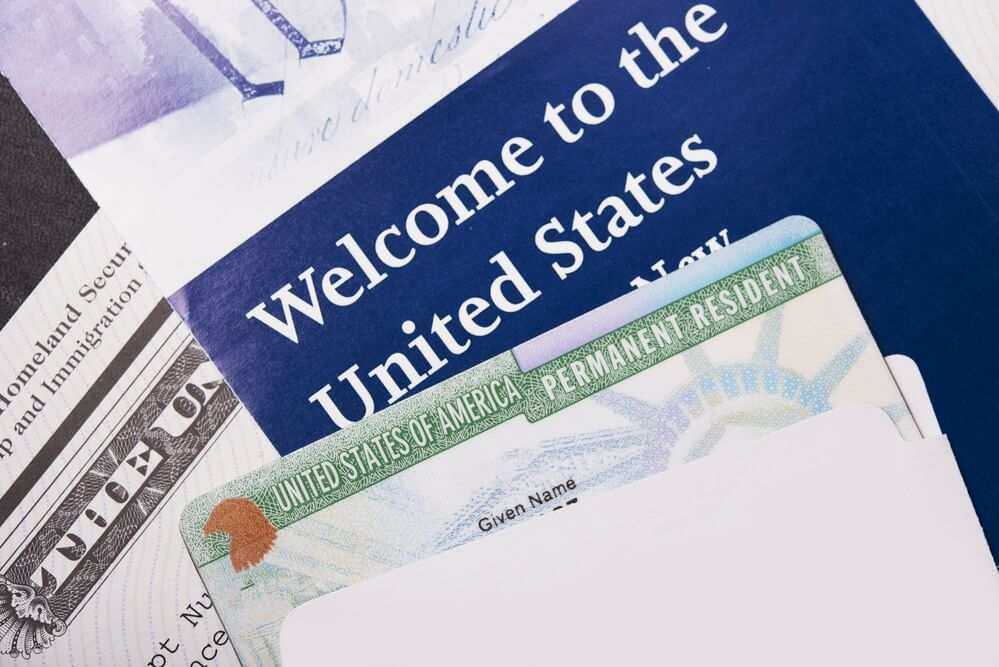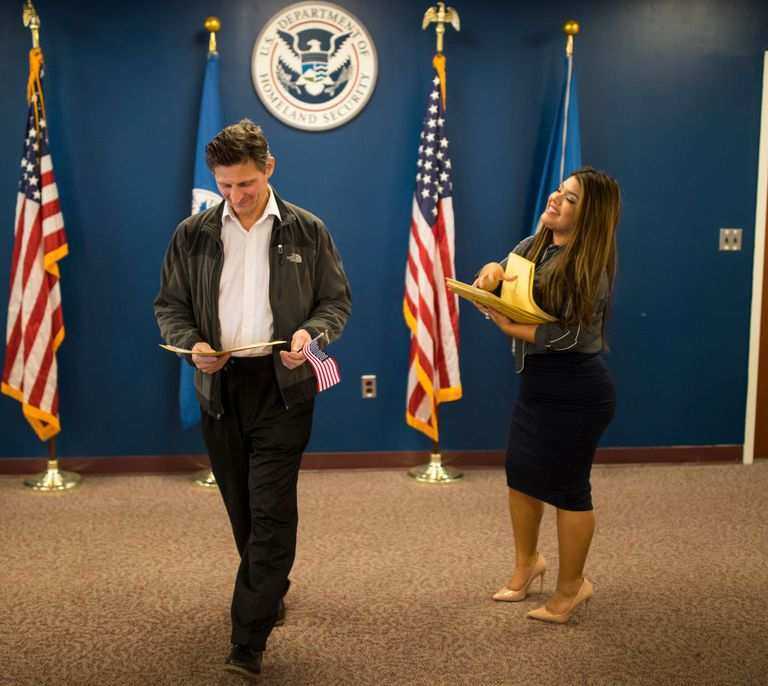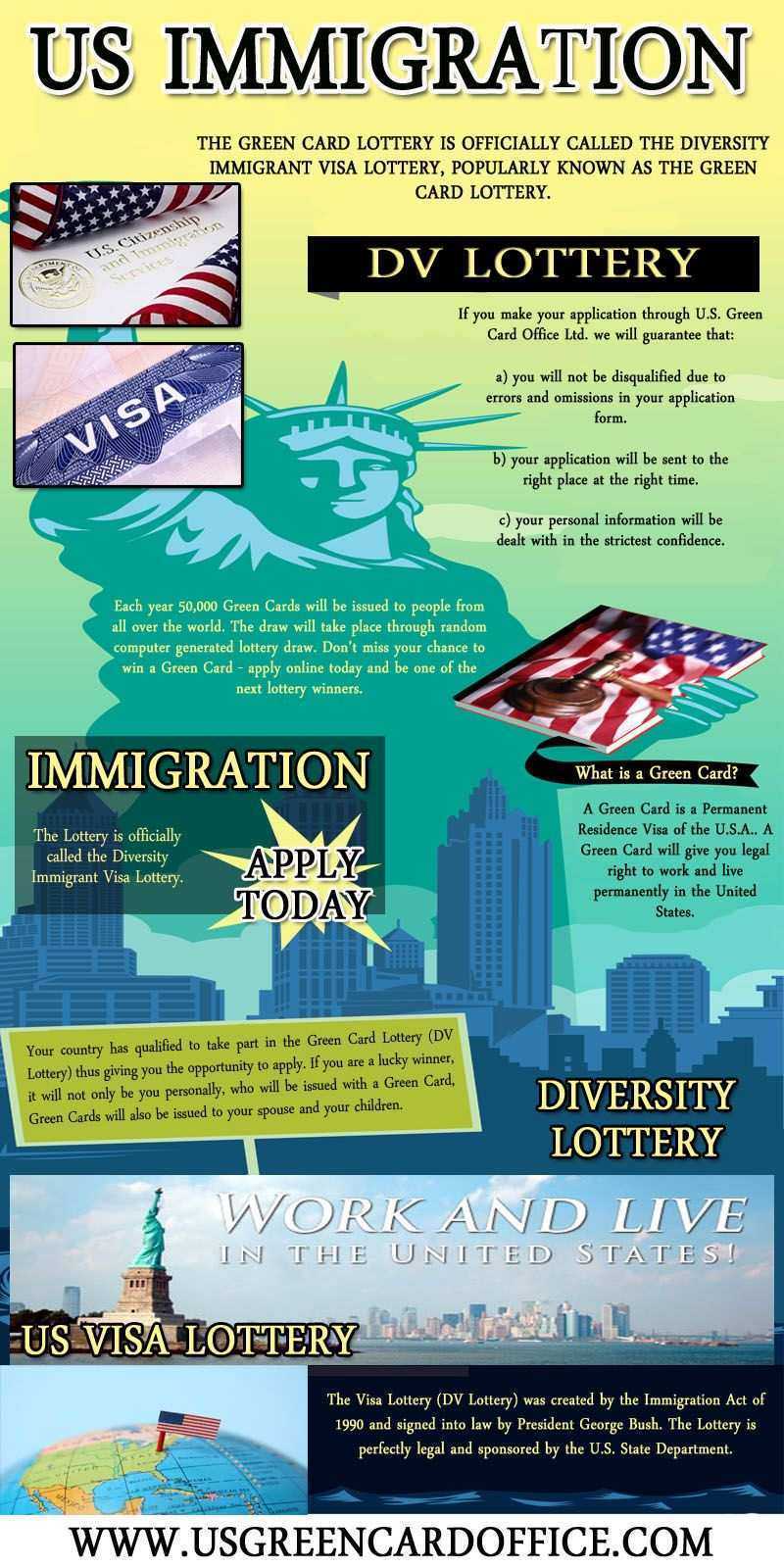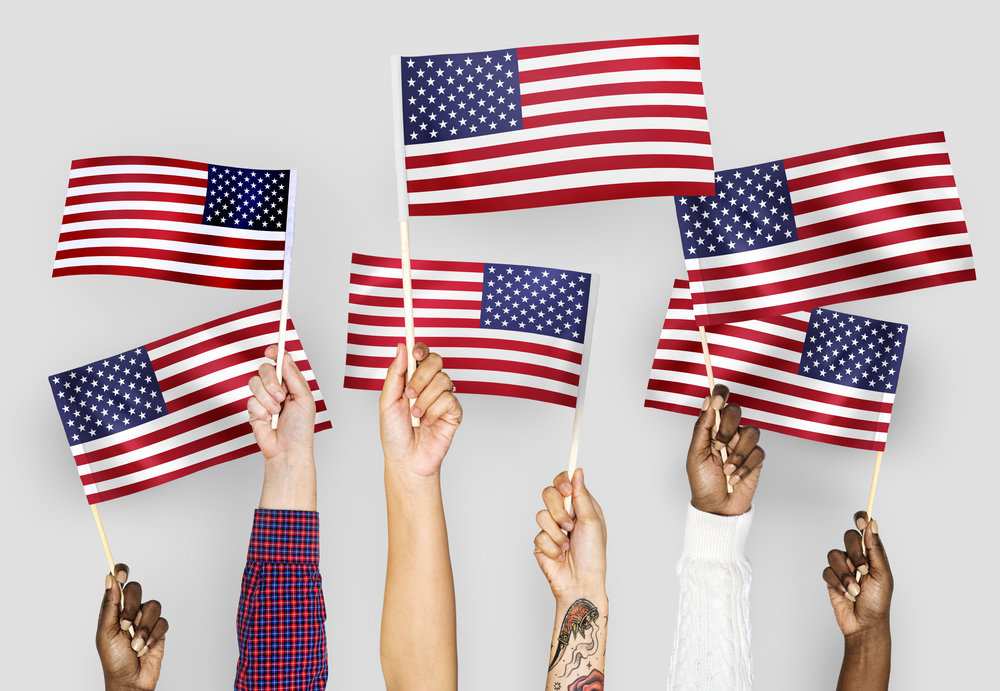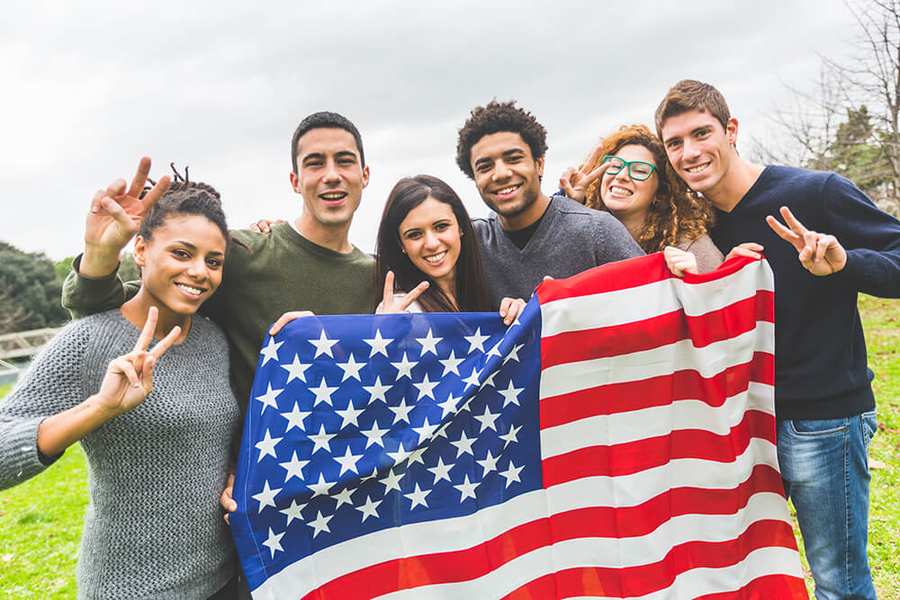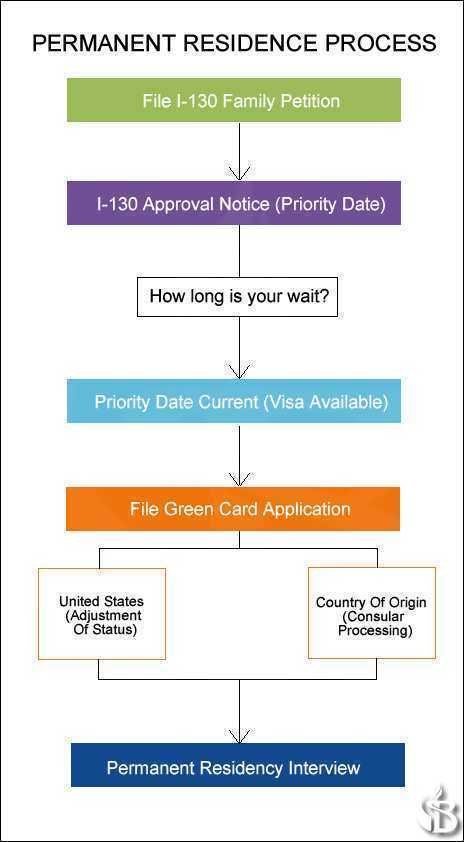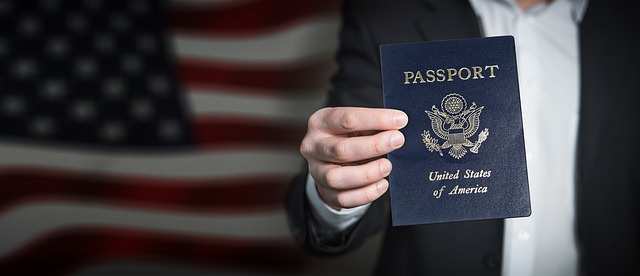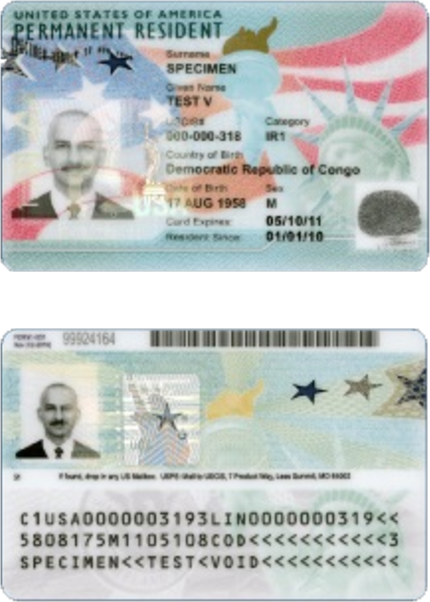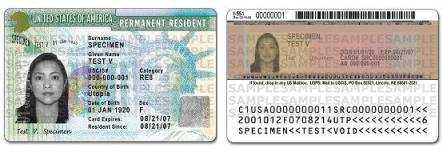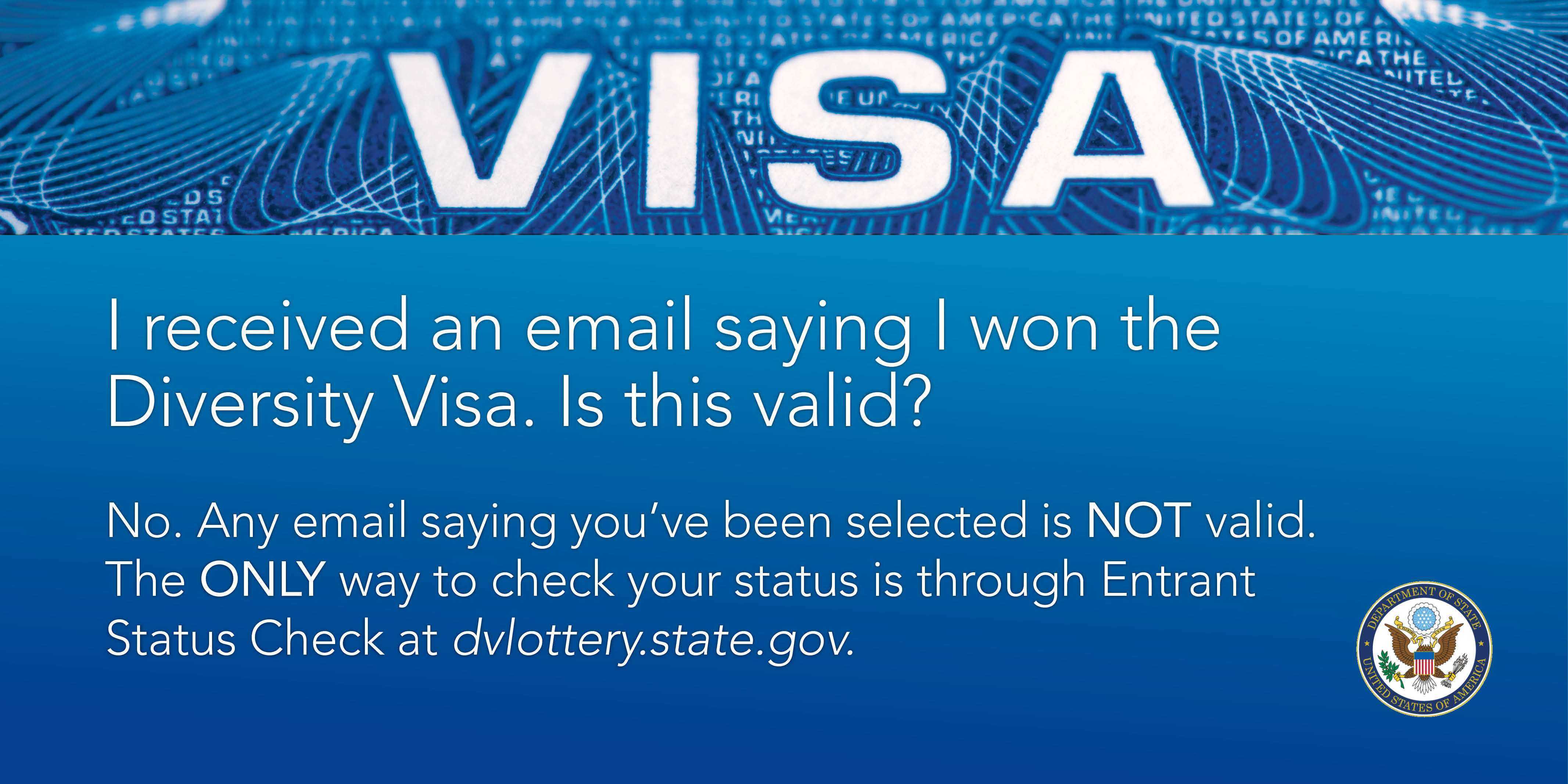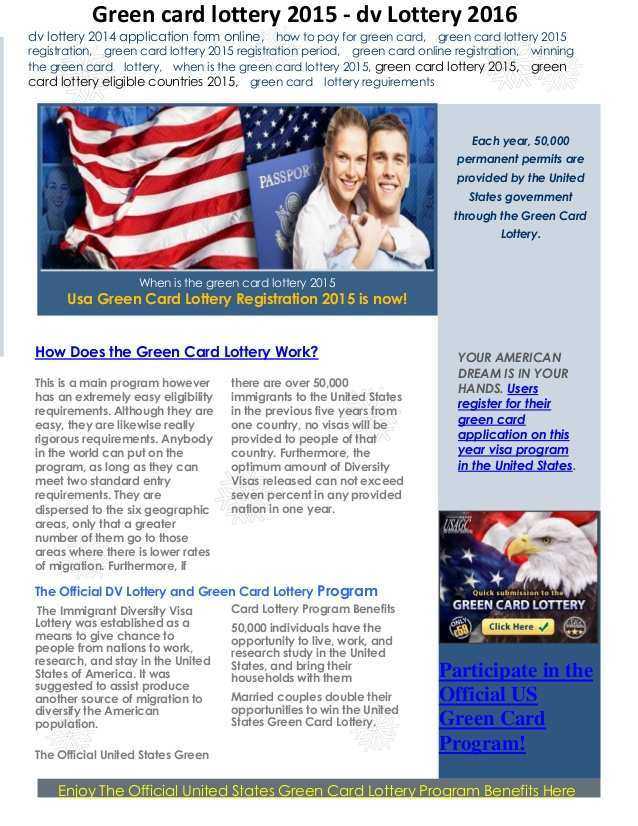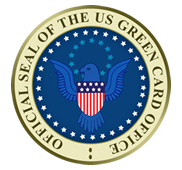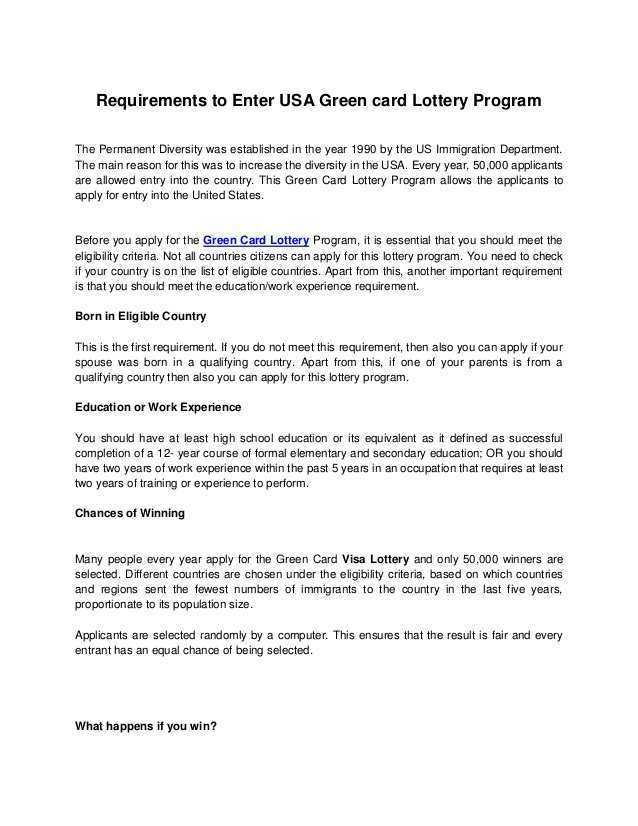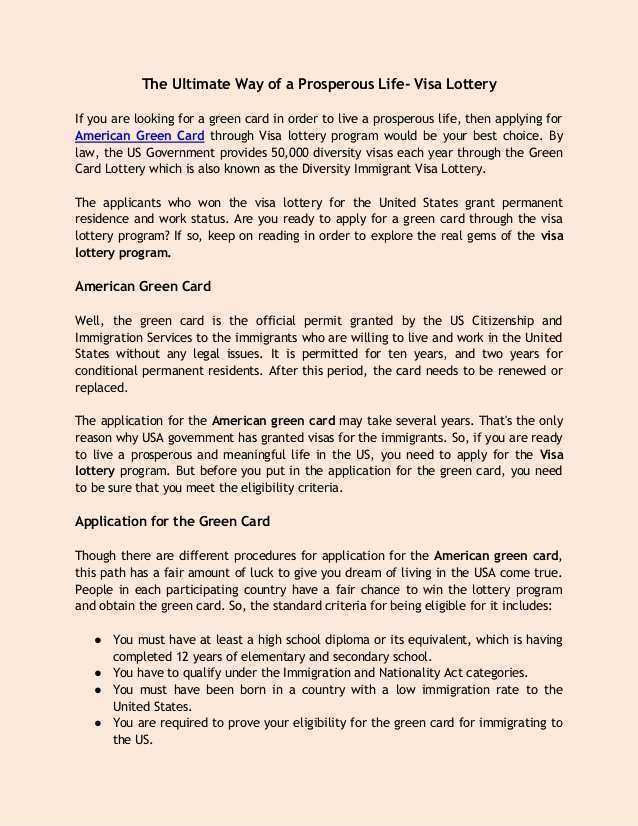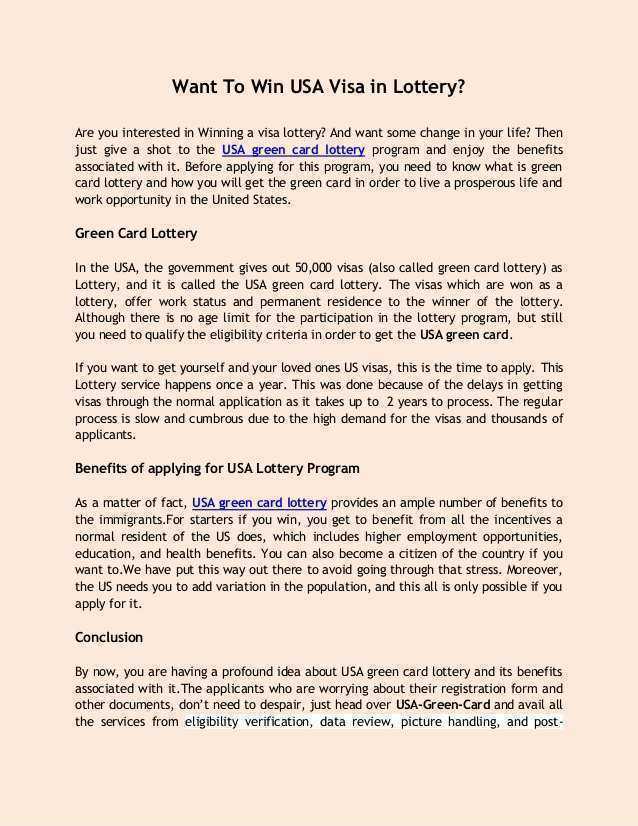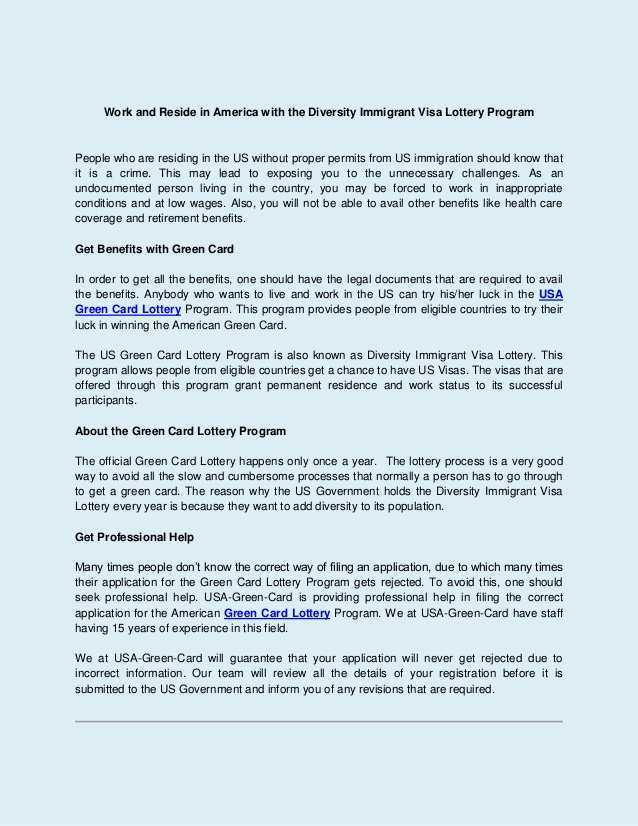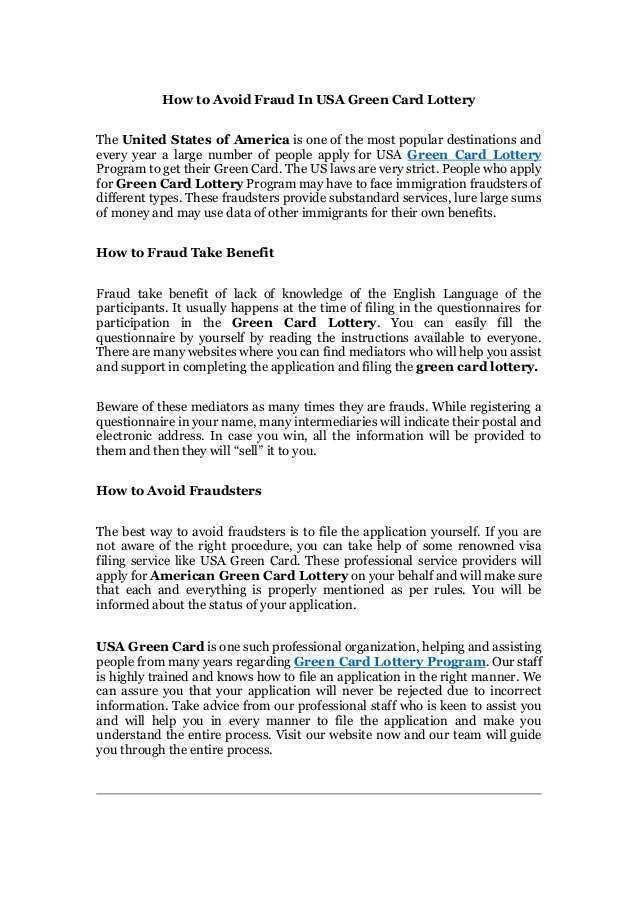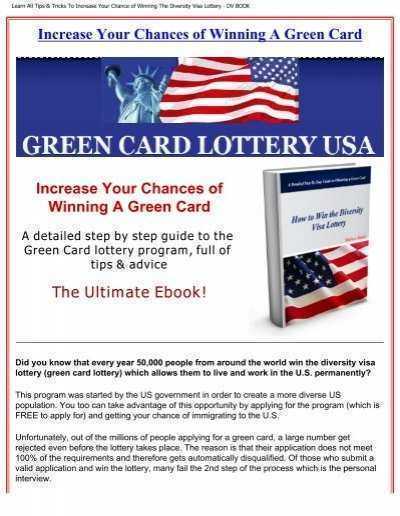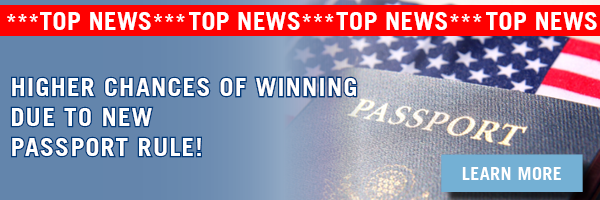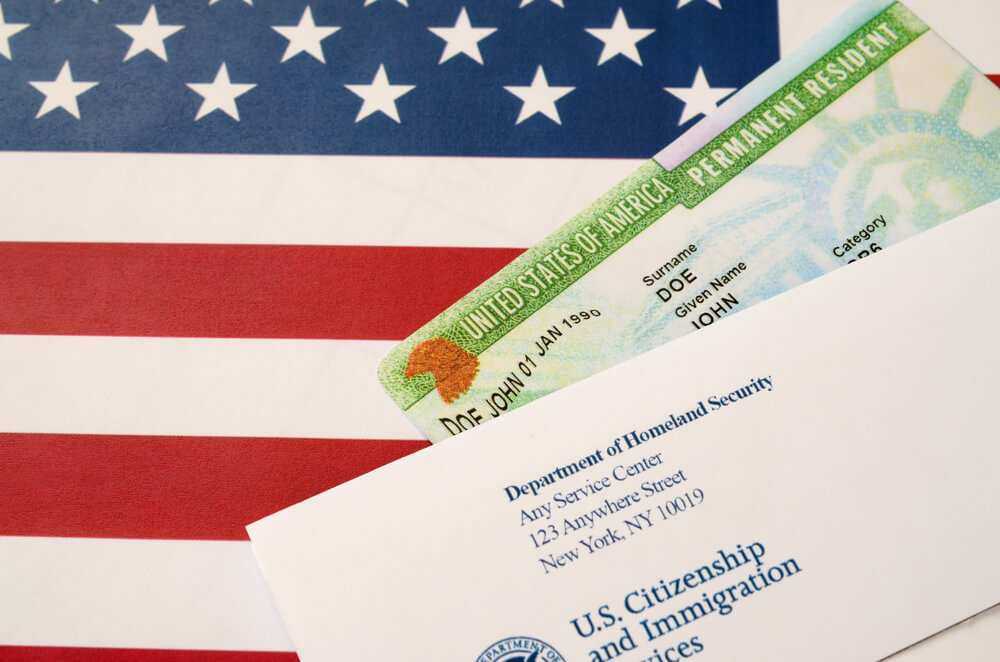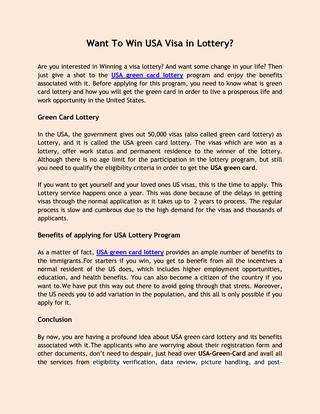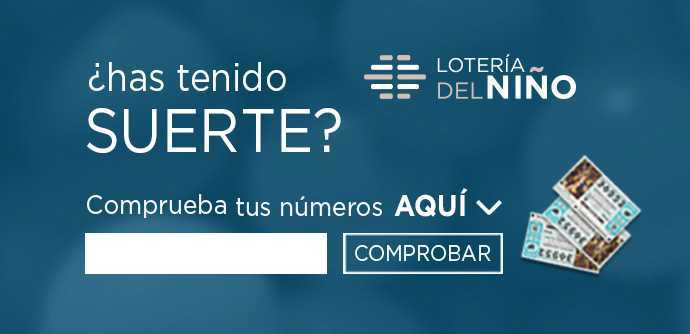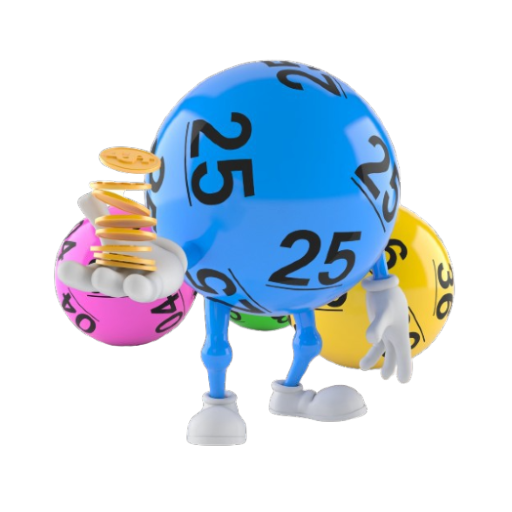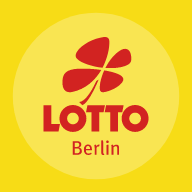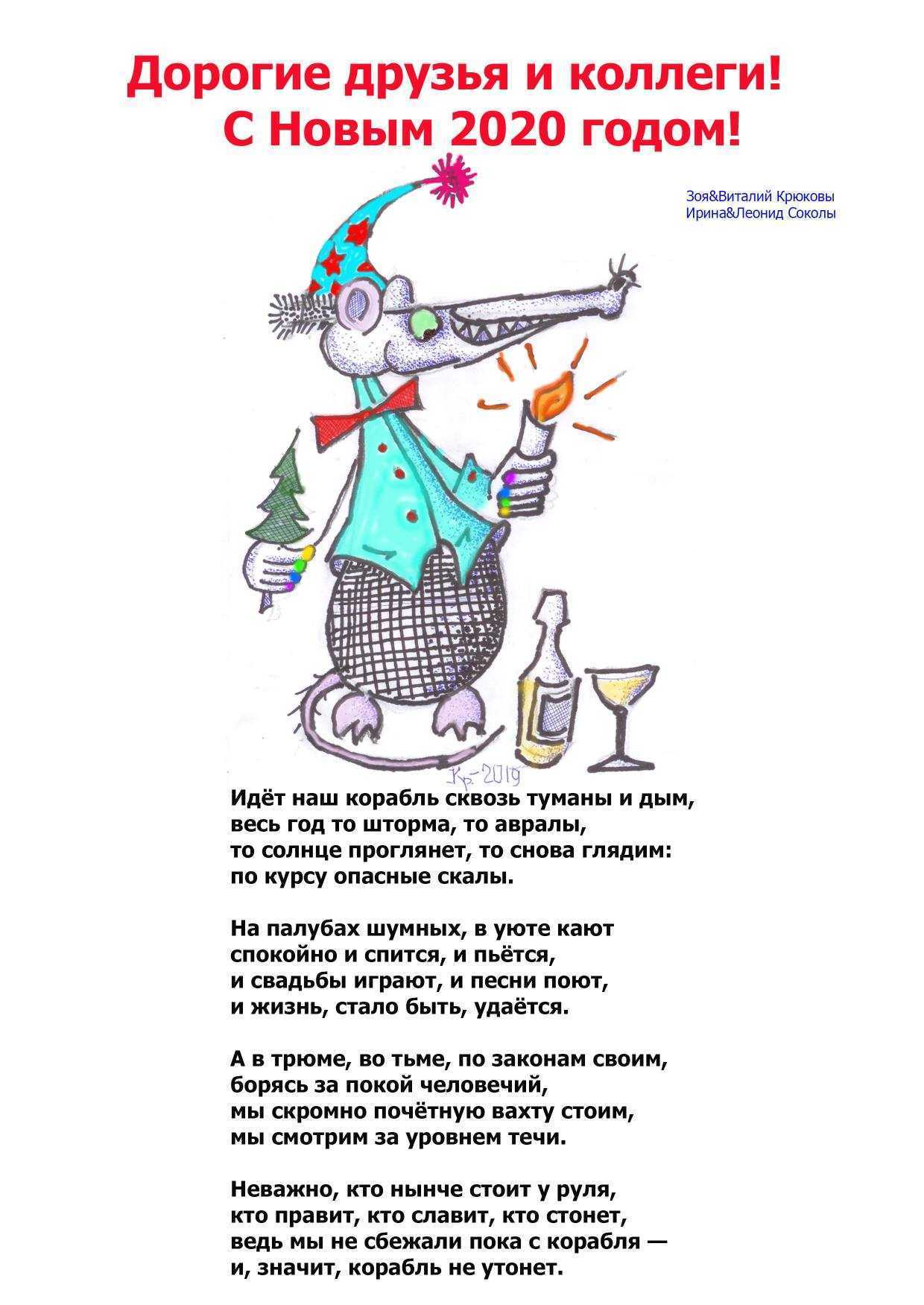Please check back to this website for continuing DV-2022 updates!
>> We have a new Facebook Page – Please Follow us on > fb.me/dvlotteryhome
The DV-2022 entry period will run from 12:00 pm (noon), Eastern Daylight Time (EDT) (GMT-4), Wednesday, October 7, 2020, until 12:00 pm (noon), Eastern Standard Time (EAST) (GMT-5), Tuesday, November 10, 2020. Those interested in entering the DV-2022 program should check this web page in the coming days. The entry form will only be available for submission during this period and this period only. Entries will NOT be accepted through the U.S. Postal Service.
Please read the DV-2022 Entry Instructions carefully. Entrants may be disqualified for not completing the entry form correctly or by submitting more than one entry.
The entry form is prepared in two parts, one for the primary Entrant and one for derivatives (if any). Each part must be completed correctly and completely before going to the next part. After all parts are completed, the entry will be submitted to the DV-2022 Processing Center.
How much do you know about Diversity Visa Lottery? Please read here the answers to the most common questions about DV
>> What you should know about DV-2022 – important points to remember
>> DV-2022 Translations – Unofficial translations: Albanian, Armenian, Farsi, French, Japanese, Latvian, Nepali, Polish, Romanian, Russian, Spanish, Thai, Turkish, Ukrainian, Uzbek
>> Step by step Guide for DV-2022
INSTRUCTIONS FOR THE 2022 DIVERSITY IMMIGRANT VISA PROGRAM (DV-2022)
Program Overview
The Department of State administers the Congressionally-mandated Diversity Immigrant Visa Program annually. Section 203(c) of the Immigration and Nationality Act (INA) provides for a class of immigrants known as “diversity immigrants” from countries with historically low rates of immigration to the United States. For Fiscal Year 2022, 55,000 Diversity Visas (You) will be available. There is no cost to register for the DV program.
Applicants who are selected in the program (“selectees”) must meet simple but strict eligibility requirements to qualify for a diversity visa. The Department of State determine selectees through a randomized computer drawing. The Department of State distributes diversity visas among six geographic regions and no single country may receive more than seven percent of the available DVs in any one year.
For DV-2022, natives of the following countries are not eligible to apply, because more than 50,000 natives of these countries immigrated to the United States in the previous five years:
Bangladesh, Brazil, Canada, China (including Hong KongSAR), Colombia, Dominican Republic, The Savior, Guatemala, Haiti, Honduras, India, Jamaica, Mexico, Nigeria, Pakistan, Philippines, South Korea, United Kingdom (except Northern Ireland) and its dependent territories, and Vietnam.
Persons born inMacau SAR and Taiwan are eligible.
Go NEXT >> DV-2022 Eligibility
============================================Tell me more about Diversity Visa (DV):
The annual DV program makes visas available to persons meeting simple, but strict, eligibility requirements. A computer-generated, random drawing chooses selectees for DVs. The visas are distributed among six geographic regions, and within each region, no single country may receive more than seven percent of the available DVs in any one year. Visas are allocated to nationals of countries with historically lower rates of U.S. immigration. Nationals of countries who have sent more than 50,000 immigrants to the United States over the past five years are not eligible to apply for the Diversity Visa program.
Digital Image Head Size Template
Review examples on the Photo Requirements webpage.
Well Composed Photo Composition Examples:
============================================2021 Entrant Status Check
DV-2021 Entrants may enter their confirmation information starting at noon (EDT) on June 6, 2020. DV-2021 Entrants should keep their confirmation number until at least September 30, 2021.
Professional Immigration Service
- Green Card Winners
- ApplicationStep-by-Step
- Qualifying Countries
- Have a Question? Ask A Specialist
Apply for the DV Lottery and start living the American Dream
The New World has always attracted enthusiasts from the four corners of the earth who are striving for self-realization and prosperity. To help them get where they want to be, the United States State Department issues 50,000 Green Cards under the Diversity Immigrant Visa Program every year. It aims to provide people in other nations with the opportunity to become permanent residents of America and foster multiculturalism within the country. Thousands of individuals apply to participate in the Green Card Lottery annually, hoping to win a lucky ticket to a new life in the United States. You can become one of the fortunate souls who get the reward they wished for.
From the U.S. Department of State Bureau of Consular Affairs Visa Services
The congressional mandated Diversity Immigrant Visa Program is administered on an annual basis by the US Department of State and conducted under the terms of Section 203(c) of the Immigration and Nationality Act (INA). Section 131 of the Immigration Act of 1990 (Pub. L. 101-649) amended INA 203 to provide for a new class of immigrants known as “diversity immigrants” (DV immigrants). Alien petitioners for the Diversity Visa Program will no longer be permitted to submit a petition by mail. Instead, the Department will require that all petitions be submitted to it in an electronic format, using an Internet website dedicated specifically to the submission and receipt of Diversity Visa applications.
US GREEN CARD OFFICE provide a value added service for all our clients in 20 different languages, and our fee for this value added service starts from $80.00 The official submission period for the Green Card Lottery is normally 30-60 days but this can vary from one year to another and is typically between the months of October and November. Our professional immigration team offers you the opportunity to prepare and complete your USA Green Card application online according to all legal requirements 365 days per year. Your application will be submitted within the right time as announced by the US Government in the year in which you apply. As soon as your application has been submitted to the US Government by our immigration team an official confirmation number will be send to you as your proof that your application has been received by the US Government.
* Please read our Terms and Conditions and Our Privacy Policy regarding our money back guarantee before submitting an application.
Why do certain countries not qualify for the Diversity Visa Program?
The Green Card Diversity Lottery allows natives of myriad countries to acquire permanent American residency. As a winning participant, you and your family can become United States citizen through naturalization.
People from the following regions can take part in the lottery:
- Asia
- Africa
- Europe
- Oceania
- North, South and Central America
- The Caribbean
There are high- and low-admission regions and states. Each nation’s allowance for the American Green Card Lottery depends on the number of immigrant visas that country has issued to foreign citizens within the last five years. This approach ensures migration balance and stimulates diversification.
Check the list of qualified Green Card DV lottery countries to see if you can apply. Remember that the list is revised regularly, so you can visit our website periodically to get updates on any changes.
The benefits of winning the United States Green Card Lottery
Immigration to America can open many opportunities. If you plan to obtain quality higher education or wish to have access to the best healthcare services, a permanent United States residency is for you. If you want to become a citizen later, your prospects for the future will be even better.
Students with Green Cards are considered in-state permanent residents of the United States, making American colleges and universities’ tuition fees lower for them than for foreign applicants. Moreover, by winning the Diversity Visa Lottery, you gain the right to financial aid, which will reduce your study expenses dramatically.
Green Card holders also qualify for Social Security that grants United States citizens certain privileges. It provides the following benefits:
- medical and disability insurance
- childcare assistance
- rewarding retirement plans
- support for seniors
Once you obtain a Green Card by winning the United States Diversity Lottery, you will be able to find a better job as well. Permanent residents can build careers in almost any company. Unlike regular immigrants, Green Card holders don’t need sponsorship for work visas from their employers.
How to play online
One of the ways to participate in the drawing of foreign lottery tickets is to use intermediaries of foreign games. The principle of work of intermediaries is quite simple - specialized sites have agents in the states, drawing tickets for world lotteries.
Resellers purchase original tickets for common games. The participant receives a scanned copy of the ticket, and filling in the original is carried out in accordance with the instructions of the participant of the drawing.
The income of intermediaries consists in the sale of tickets for foreign games at a cost, an order of magnitude higher than the market, the intermediary charges a commission for the provision of his services. This is the disadvantage of using intermediary services.
Upon receipt of the winnings, funds are withdrawn to the player's account, which he binds when registering his account on the intermediary's website.
In case of receiving a large cash prize of the second or third category, the account owner must go through the verification procedure, which confirms the identity of the owner of the registered account.
If you win the jackpot, it will be handed out only in person, therefore, in such a situation, it will be necessary to prepare for a trip to the country where the lottery is held. Some large services in such a situation partially cover the costs of organizing the trip., which is the undoubted advantage of using intermediary services.
After that, it is possible to make a payment to the system in any convenient way and pay for the purchase of tickets. Large sites provide the ability to deposit money using any of the most electronic payment methods.
In this case, you can use both bank cards of the most common systems, and various virtual wallets. The disadvantage of most of these sites is the lack of Russian in the interface.
After funds are deposited, they are reflected in the game account, the player only has to independently choose the foreign lottery that interests him. The ticket price is equal to the real, there are no markups of intermediaries, what can be considered one of the advantages of this way of playing.
In order to protect yourself from fraudulent activities, you need to know, that there are two types of intermediaries - transparent and invisible, they work differently.
Transparent intermediaries conduct open activities. The buyer can see all the markups before purchasing the coupon and decide, whether or not to invest in the purchase of a ticket. In order to see the available prices, you do not need to go through the registration procedure on the intermediary's website.
Invisible intermediaries do not provide information on extra charges and the real cost of the ticket, when selling it by an intermediary, the player can see, just putting it in your basket, after completing the registration procedure on the intermediary website.
To protect yourself, you should adhere to the following recommendations:
- choose only reliable ones for the game, large and time-tested services;
- before using the services provided, you need to check the availability of an activity license, especially when purchasing a real ticket, the license is a guarantee of the supplier's honesty;
- you should rummage on the Internet and study the available fresh reviews about the games and sites on which the game was carried out.
The benefits of winning the United States Green Card Lottery
Immigration to America can open many opportunities. If you plan to obtain quality higher education or wish to have access to the best healthcare services, a permanent United States residency is for you. If you want to become a citizen later, your prospects for the future will be even better.
Students with Green Cards are considered in-state permanent residents of the United States, making American colleges and universities’ tuition fees lower for them than for foreign applicants. Moreover, by winning the Diversity Visa Lottery, you gain the right to financial aid, which will reduce your study expenses dramatically.
Green Card holders also qualify for Social Security that grants United States citizens certain privileges. It provides the following benefits:
- medical and disability insurance
- childcare assistance
- rewarding retirement plans
- support for seniors
Todays lottery in the States
Today, lotteries are established in 44 states, the District of Columbia, Puerto Rico, and the Virgin Islands. The most recent US lottery to be legalized was in Wyoming, where it began operation on July 1, 2013 although tickets were not sold for about a year.
Some retailers that sit on state lines often offer both state lotteries with state boundaries clearly marked, since such sales still have to occur in the physical state it is offered. One retailer located along U.S. Route 62that is largely in Sharon, Pennsylvania but has a small portion lying inMasury, Ohio sells both the Ohio Lottery and the Pennsylvania Lotteryat one location. The first modern US joint-state lottery game was formed in 1985 inMaine, New Hampshire, and Vermont. In 1988, the Multi-State Lottery Association (MUSL) was formed with Iowa, Kansas, Missouri, Oregon,Rhode Island, West Virginia, and the District of Columbia as its charter members; it is best known for Powerball, which was designed to create large jackpots. Another joint lottery, The Big Game (now called Mega Millions), was formed in 1996 by six other lotteries as its charter members.
Today, all 44 individual state lotteries offer both Mega Millions and Powerball as a result of a 2009 agreement between the Mega Millions consortium and MUSL to cross-license their joint games to one another’s members, although the two organizations continue to administer Mega Millions and Powerball separately. D.C. and the U.S. Virgin Islands also offer both games. Only the Puerto Rico Lottery offers only Powerball and not Mega Millions.
Among the states that do not have lotteries, Alabama, Mississippi, and Utah cite religious objections. Nevada’s lucrative gambling industry has lobbied against a state lottery there, fearing the competition. Alaska and Hawaii, being outside the contiguous United States, have not felt the pressure of losing sales to competitors.
Lottery games in the United States
– All or Nothing: draw game in Iowa and Minnesota
– Cash4Life: Indiana, Maryland, Georgia, Florida, New York, New Jersey, Tennessee, Virginia and Pennsylvania
- 2by2: North Dakota, Kansas and Nebraska
– Hot Lotto: North Dakota, South Dakota, Tennessee, Vermont, West Virginia , Delaware, Idaho,
Iowa, Kansas, Maine, Minnesota, Montana, New Hampshire and New Mexico,
– Mega Hits: Video slots in Ohio, Rhode Island Delaware, Maryland and West Virginia
– Lucky for Life: Michigan, Minnesota, Missouri, Montana, New Hampshire, North Carolina, North Dakota, Ohio, Rhode Island, South Carolina , Arkansas, Colorado, Connecticut, Delaware, District of Columbia, Idaho, Iowa, Kansas, Kentucky, Maine, Massachusetts, Vermont, Wyoming. Nebraska, South Dakota, and West Virginia were added in in 2017
– Tri-State Lottery (Megabucks Plus°, Pick 3 (Day & Night), Pick 4 (Day & Night), Fast Play: Maine, New Hampshire, Vermont
Jackpot winners 2016
Below the big winners of all lotteries in the United States of America:
- December 17, 2016 Cash $121,600,000.00 annuity ($72,145,291.83 cash)
- Tennessee: November 26, 2016 Cash $420,900,000.00 annuity ($254,652,358.97 cash)
- William and Heather ten Broeke, Georgia, September 17, 2016 Cash $246,800,000.00 annuity
- Robin Egg 2016 Nominee Trust, New Hampshire, July 30, 2016 Cash $487,000,000.00 annuity
- Smith Family Lottery Pool, New Jersey, May 7, 2016 Cash $429,600,000.00 annuity ($284,097,219.71 cash )
- James Stocklas, Florida, March 2, 2016 Cash $291,400,000.00 annuity ($191,470,307.58 cash)
- Marvin and Mae Acosta, California, January 13, 2016 Cash $1,586,400,000.00 annuity (split)
- The Nickel 95 Trust, Florida, January 13, 2016 Cash $1,586,400,000.00 annuity (split)
- Lisa and John Robinson, Tennessee, January 13, 2016 Cash $1,586,400,000.00 annuity (split)
How to play the Powerball lottery
It's very simple – choose five numbers from 1 to 69 and one Powerball from 1 to 26. You can mark your own numbers or do it using the "Quick Select" option, which will generate a random set of numbers. Then you can decide, do you want to play in a draw with the "Power Play" option, which, in case of winning any prize other than the jackpot, will multiply it by the "Power Play" number.
How to buy Powerball tickets
If you live in Russia or CIS countries, you can buy Powerball tickets through the lottery concierge service. Choose dates and pay for your tickets. After that, the service agent will receive bids and purchase tickets. A copy of your bets will appear in your account. End of ticket sales – three or four hours before each draw. After circulation, the concierge service will check your ticket. If you win a prize, winnings are credited to the game account within 24 hours after the draw. You can then withdraw the entire amount to your bank account. If you win a jackpot or a big prize, you will need to get it from your local lottery office.
The tax on winnings is 30% for non-US residents.
Chances of winning the Powerball lottery
The Powerball lottery has 9 prize round. Below are the odds of winning each one:
|
Guess numbers |
Chances of winning |
Prize |
|
5 + Powerball |
1 of 292 201 338 |
Super prize |
|
5 |
1 of 11 688 053,52 |
$1 000 000 |
|
4 + Powerball |
1 of 913 129,18 |
$50 000 |
|
4 |
1 of 36 525,17 |
$100 |
|
3 + Powerball |
1 of 14 494,11 |
$100 |
|
3 |
1 of 579,76 |
$7 |
|
2 + Powerball |
1 of 701,33 |
$7 |
|
1 + Powerball |
1 of 91,98 |
$4 |
|
Powerball only |
1 of 38,32 |
$4 |
| Generally, chances of winning one of the different prizes in Powerball – 1 of 24,87. |
Chances of Winning with the Power Play Option
You can add the 'Power Play' option to your ticket for a small additional cost. If you choose this option and win any prize, except for the jackpot, it will be multiplied. The prize will be increased in 2, 3, 4, 5 or 10 times whichever, what is the number of "Power Play" in the circulation. The exception is the second prize, which automatically doubles with 1 million to 2 million dollars, if you play with the "Power Play" option regardless of the dialed number. 10-multiple multiplier is available for selection when buying a ticket only if, when the estimated jackpot is 150 million dollars or less.
| Combination | Original prize | 2x Power Play | 3x Power Play | 4x Power Play | 5x Power Play | 10x Power Play |
|---|---|---|---|---|---|---|
| 5 + Powerball | Jackpot | Jackpot | Jackpot | Jackpot | Jackpot | Jackpot |
| 5 | $1 million. | $1 million. | $1 million. | $1 million. | $1 million. | $1 million. |
| 4 + Powerball | $50 thousand. | $100 thousand. | $150 thousand. | $200 thousand. | $250 thousand. | $500 thousand. |
| 4 | $100 | $200 | $300 | $400 | $500 | $1 thousand. |
| 3 + Powerball | $100 | $200 | $300 | $400 | $500 | $1 thousand. |
| 3 | $7 | $14 | $21 | $28 | $35 | $70 |
| 2 + Powerball | $7 | $14 | $21 | $28 | $35 | $70 |
| 1 + Powerball | $4 | $8 | $12 | $16 | $20 | $40 |
| Powerball | $4 | $8 | $12 | $16 | $20 | $40 |
watch the drawing
Lotteries in the United States
In the United States, lotteries are run by 47 jurisdictions: 44 states plus the District of Columbia, Puerto Rico, and the U.S. Virgin Islands. Lotteries are subject to the laws of and operated independently by each jurisdiction, and there is no national lottery organization. However, consortiums of state lotteries jointly organize games spanning larger geographical footprints, which in turn, carry larger jackpots. Two major lottery games, Mega Millions and Powerball, are both offered in nearly all jurisdictions that operate lotteries, and serve as de facto national lotteries.
Gambling as a generalization has roots in the United States and other English colonies as far back as the 1600s. Not every colony allowed gambling, however. The Massachusetts Bay Colony, for example, did not allow cards, dice or gaming tables, even in private residences. In most colonies however, gambling was seen as a harmless distraction as long as it was played in a gentlemanly manner.
The acceptance of gambling in the colonies was fairly short-lived by English investors because it was seen as a sign of laziness and as a vice. The investors saw gambling as a root cause of the colonies’ inability to sustain themselves. Lotteries were used not only as a form of entertainment but as a source of revenue to help fund the colonies. The financiers of Jamestown, Virginia, for instance, funded lotteries to raise money to support their colony. These USA lotteries were quite sophisticated for the time period and even included instant winners. Not long after, each of the 13 original colonies established a lottery system to raise revenue. In early American history, legislators commonly authorized lotteries to fund schools, roads, bridges, and other public works. Evangelical reformers in the 1830s began denouncing lotteries on moral grounds and petitioned legislatures and constitutional conventions to ban them. Recurring lottery scandals and a general backlash against legislative corruption following the Panic of 1837 also contributed to anti-lottery sentiments. From 1844 to 1859 alone, 10 new state constitutions contained lottery bans. By 1890, lotteries were prohibited in every state except Delaware and Louisiana.
State lotteries have become a significant source of revenue for states, raising $17.6 billion in profits for state budgets in the 2009 fiscal year (FY) with 11 states collecting more revenue from their state lottery than from their state corporate income tax during FY2009. Lottery policies within states can have conflicting goals. Given that instructions are passed down from state legislatures, lottery implementation is often expected to be carried out with reduced advertising and funding while still producing the same amount of revenue. This issue led states to look for loopholes in the system. Massachusetts, for example, had its advertising budget dramatically cut, and therefore started using free-play coupons as money to pay for advertising. This led to an IRS investigation into alleged non-reporting of income because the IRS considered the coupons to have monetary value.
National lottery USA
Lotteries in the United States did not always have sterling reputations. One early lottery in particular, the National Lottery, which was passed by Congress for the beautification of Washington D.C. and was administered by the municipal government, was the subject of a major U.S. Supreme Court decision Cohens v. Virginia.
The lottery never paid out, and it brought to light the prevalent issue of crookedness amongst the lotteries in the United States. The wave of anti-lottery protests finally broke through when, by 1860, all states had prohibited lotteries except Delaware, Missouri, and Kentucky. The scarcity of lotteries in the United States meant that tickets were shipped across the country and eventually led to the creation of illegal lotteries. In 1868, after years of illegal operation, the Louisiana Lottery Company obtained a 25-year charter for its state lottery system. The charter was passed by the Legislature due to immense bribing from a criminal syndicate in New York. The Louisiana Lottery Company was a derived 90% of its revenue from tickets sold across state borders. These continued issues of corruption led to the complete prohibition of lotteries in the United States by 1895. It was discovered that the promoters of the Louisiana Lottery Company had accrued immense sums of money from illegitimate sources and that the Legislature was riddled with bribery.
Before the advent of government-sponsored lotteries, many illegal lotteries thrived, such as number games. The first modern government-run US lottery was established in Puerto Rico in 1934. This was followed, decades later, by the New Hampshire lottery in 1964. Instant lottery tickets, also known as scratch cards, were introduced in the 1970s and have become a major source of lottery revenue. Individual lotteries often feature three-digit and four-digit games akin to numbers games; a five number game, and a six number game (the latter two often have a jackpot.) Some lotteries also offer at least one game similar to keno, and some offer video lottery terminals. Presently, many US lotteries support public education systems.
